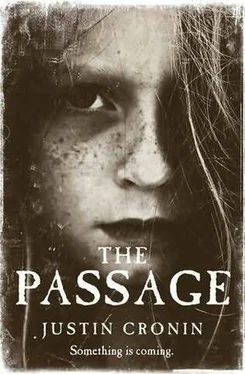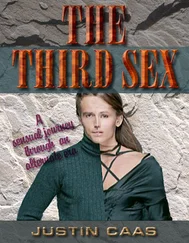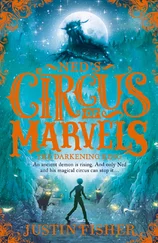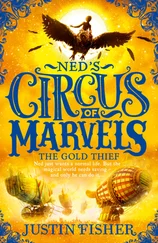Peter Jaxon, twenty-one, armed at Full Watch. Standing the Wall as his brother had done, and his father, and his father before him. Standing to serve the Mercy.
It was the sixty-third of summer, the days still long and dry under wide blue skies, the air fresh with the scents of juniper and Jeffrey pine. The sun stood two hands; First Evening Bell had sounded from the Sanctuary, summoning the night shift to the Wall and calling in the herd from Upper Field. The platform on which he stood-one of fifteen distributed along the catwalk that ringed the top of the Wall-was known as Firing Platform One. Usually it was reserved to the First Captain of the Watch, Soo Ramirez, but not tonight; tonight, as for each of the last six nights, it was Peter’s alone. Five meters square, it was edged by an overhanging net of cabled steel. To Peter’s left, rising another thirty meters, stood one of the twelve light assemblies, rows of sodium-vapor bulbs in a grid, dim now in the last of day; to his right, suspended over the nets, was the crane with its block and tackle and ropes. This Peter would use to lower himself to the base of the Wall, should his brother return.
Behind him, forming a comforting cloud of noise and smells and activity, lay the Colony itself, its houses and stables and fields and greenhouses and glens. This was the place where Peter had lived his whole life. Even now, facing away to watch the herd come home, he could hold each meter of it in his mind, a mental inventory in three dimensions with complete sensory accompaniment: the Long Path from the gate to Old Town, past the Armory with its music of hammering metal and the shaded recesses of West Glade, where Auntie lived; the fields with their rows of corn and beans, the backs of the workers bent low over the black earth, tilling and hoeing; the broad, semicircular plaza known as the Sunspot, where the trading days and open meetings of the Household were held; the Sanctuary, with its ringing bell-tower and bricked-in windows and coils of concertina wire, barricades that somehow failed to suppress the voices of the Littles playing in the courtyard; the pens and barns and grazing fields and coops, alive with the sound and smell of animals; the three greenhouses, their interiors obscured by a fog of humidity, and, standing adjacent, the vast scavenged bounty of the Storehouse, where Walter Fisher presided over the stalls of clothes and tools and food and fuel; the blocks of houses in various states of repair, from crumbing cabins long abandoned to those that, like Peter’s, had been continuously occupied since The Day; the orchard and buzzing apiary and old trailer park, where nobody lived anymore, and, beyond it, past the last houses of the North Quarter and the Big Shed, at the base of the cutout between the north and east walls in a zone of perpetual cooling shade, the battery stack, three gray bulks of humming metal wrapped by wire and pipe, still resting on the sunken wheels of the semi-trailers that had pulled them up the mountain in the Time Before.
The herd had crested the rise; Peter watched from above as they approached, a jostling, bleating mass that flowed like liquid up the hill, followed by the riders, six in all, tall on their mounts. The herd moved as one toward him through the gap in the fireline, their hooves kicking up a cloud of dust. As the riders passed under his post, each gave Peter a tight nod of acknowledgment, as they had for each of the last six evenings.
No words would pass between them. It was bad luck, Peter knew, to speak to someone waiting on the Mercy.
One of the riders broke away: Sara Fisher. Sara was a nurse by trade; Peter’s own mother had been the one to train her. But like many people, she had more than one job. And Sara was built to ride-slender but strong, with an alert physical presence in the saddle and a quick, supple style on the reins. She was dressed, as all the riders were, in a loose jersey cinched at the waist, above leggings of patched denim. Her hair, a sun-warmed blond cut short to the shoulders, was tied away, a single loose strand swaying over her eyes, deep-set and dark. A leather bow guard sheathed her left arm from elbow to wrist; the bow itself, a meter long, was slung diagonally across her back like a single jouncing wing. Her horse, a fifteen-year-old gelding known as Dash, was said to prefer her above all others, pinning his ears and flicking his tail at anyone else who attempted to ride him. But not Sara; under Sara’s command he moved with a responsive grace, horse and rider seeming to share each other’s thoughts, becoming one.
As Peter watched, she cut through the gate again, against the current, back onto open ground. He saw what had drawn her away: a single lamb, a cosset born in spring, had wandered off, diverted by a patch of summer grass just inside the fireline. Setting her horse square to the tiny animal, Sara swung to the ground and in a burst of dexterous motion rolled the lamb onto its back, roping its legs three times around. The last of the herd was passing through the gate now, a roiling wave of horses and sheep and riders heading down the trace that followed the curve of the west wall toward the pens. Sara straightened and lifted her face toward the place where Peter stood on the catwalk; their eyes met quickly across the gap. On any other occasion, he thought, she would have smiled. As Peter looked on, she hoisted the lamb to her chest and draped it across the horse’s back, holding it in place with a steadying hand while she swung up into the saddle. A second meeting of the eyes, long enough to hold a sentence: I hope Theo doesn’t come, either . Then, before Peter could consider this further, Sara flicked her heels and rode briskly through the gate, leaving him alone.
Why did they do it? Peter wondered-as he had wondered through all the nights he’d stood. Why did they come home, the ones who’d been taken up? What force drove the mysterious impulse to return? A last, melancholy memory of the person they’d once been? Did they come home to say goodbye? A viral, it was said, was a being without a soul. When Peter had turned eight and been released from the Sanctuary, it was Teacher, whose job this was, who had explained all of this to him. In its blood was a tiny creature, called a virus, that stole the soul away. The virus entered through a bite, typically to the neck but not always, and once it was inside a person, the soul was gone, leaving the body behind to walk the earth forever; the person they had been was no more. These were the facts of the world, the one truth from which all other truths descended; Peter might just as well have been wondering what made the rain fall; and yet, standing on the catwalk in the sharpening dusk-the seventh and final night of the Mercy, after which his brother would be declared dead, his name etched into the Stone, his belongings carted off to the Storehouse to be patched and repaired and redistributed at Share-he thought it. Why would a viral come home if it had no soul?
The sun stood just one hand above the horizon now, descending quickly into the wavy line where the foothills declined to the valley floor. Even in high summer the days seemed to end this way, in a kind of plunge. Peter cupped his eyes against the glare. Somewhere out there-past the fireline, with its loose jumble of felled timber, and the grazing grounds of Upper Field and the dump with its pit and piles, and the scrubby woodlands hills beyond-lay the ruins of Los Angeles and, farther still, the unimaginable sea. When Peter was a Little and still living in the Sanctuary, he had learned about this, in the library. Although it had been decided, long ago, that most of the books the Builders had left behind were of no value, and potentially confusing to the Littles, who were not to know anything about the virals or what had happened to the world of the Time Before, a few were allowed to remain. Sometimes Teacher would read to them, stories about children and fairies and talking animals who lived in a forest behind the doors of a closet, or else allow them to select a book on their own, to look at the pictures and read as best they could. The Oceans Around Us: that had been Peter’s favorite, the book he’d always chosen. A faded volume, its pages dank-smelling and cool to the touch, the cracked binding held together by bits of curling yellow tape. On the cover was the name of the author, Ed Time-Life, and inside, page after wondrous page of pictures and photos and maps. One map was called the World, which was everything, and most of the World was water. Peter asked Teacher to help him read the names: Atlantic, Pacific, Indian, Arctic. Hour after hour he sat on his mat in the Big Room, the book cradled in his lap, turning the pages, his eyes locked onto these blue spaces on the maps. The World, he gathered, was round, a great watery ball-a dewdrop hurtling through the sky-and all the water was connected. The rains of spring and snows of winter, the water that poured from the pumps, even the clouds above their heads-that was all part of the oceans, too. Where was the ocean? Peter asked Teacher one day. Could he see it? But Teacher only laughed, as she always did when he asked too many questions, dismissing his concerns with a shake of her head. Maybe there’s an ocean and maybe there isn’t. It’s only a book, Little Peter. Don’t you go worrying about oceans and such .
Читать дальше












